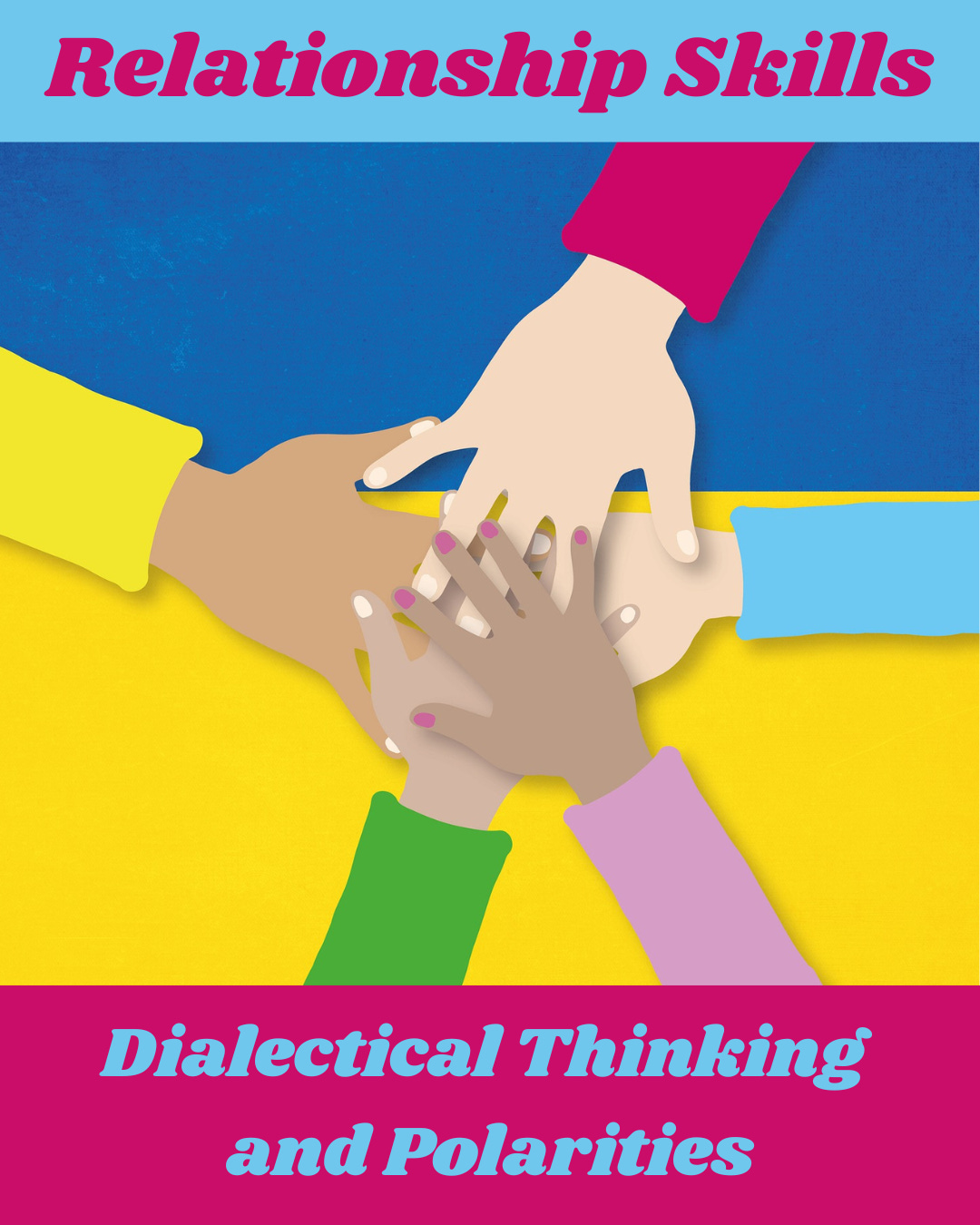Polarities are two distinct ideas or concepts that appear to be at odds with each other and mutually exclusive. When facing a polarity for the first time, it may seem that an either/or choice is required. Really, both concepts exist together and need to be balanced. For example, work and rest are opposite but both are required in our lives. Stability and change both have value, and individual and team/organizational interests both matter. This short video explains polarities a bit more (thanks to Jen Martin for recommending it to me).
The answer to polarities is not to embrace just one of the ideas, but to engage in dialectical thinking, a way of understanding and processing information by recognizing and reconciling opposing ideas or perspective. We need to accept that both have value and are true and find paths to respect and incorporate both perspectives or concepts.
If you know me personally, you may have heard me talk about dialectical behaviorial therapy (DBT), a therapeutic modality developed in Seattle by psychologist Marsha Linahan to treat people with borderline personality disorder. DBT principles have value for us all, and a DBT motto is “I am doing the best I can. I can do better.” I learned this in an introductory DBT workshop and found it very insightful for individuals and organizations. In fact, in my description of this Substack, I wrote “We are doing the best we can, and we can do better. This DBT mantra applies to nonprofits—we are doing great work, and we need to evolve our organizations and our sector to reduce harm and increase impact.” I find this idea that we can be striving already and can still have room for growth to be encouraging. It feels accurate to me. And it is a polarity.
What are the polarities you see in your personal or professional life? How can you work with others to find ways to honor both perspectives—embracing “both/and” rather than reducing the situation to “either/or”?





you might like this
https://socialtherapist.substack.com/p/capitalist-realism-the-only-theory